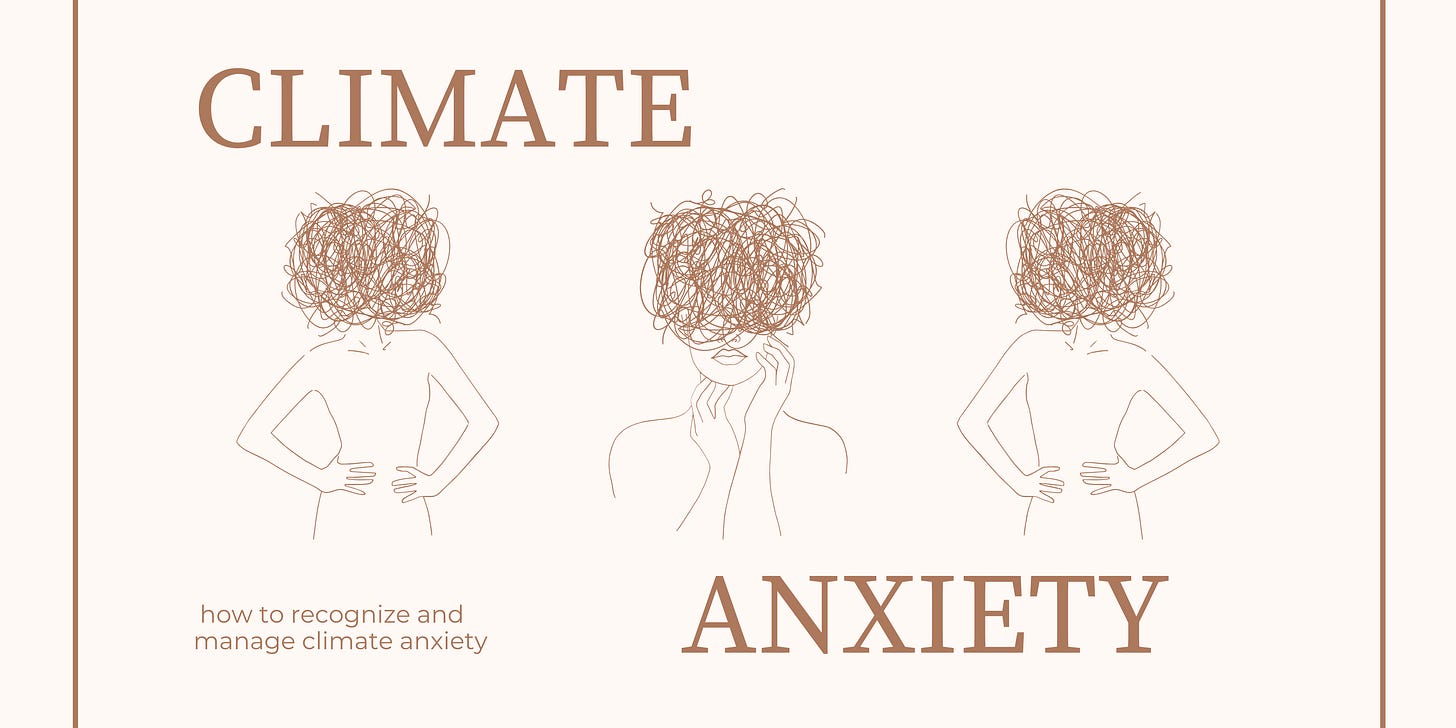Where Mindfulness Meets Climate Action - Save Our Happy Place is a resource to help align your mindset, intentions, and actions to save the planet from climate change. Learn how to incorporate small, digestible acts while garnering accumulative impact, championing optimism, and maintaining “personal sustainability”, written by Lindsay Nunez.
Over 100,000 snow geese descend upon New York City each spring in March and April. Last week, as I took a snowy stroll in the Brooklyn Botanical Garden, I saw hundreds of geese roosting on the Cherry Esplanade. My heart sank. I felt a pit in my stomach. My eyes watered up. Little reminders like these that we are already facing the effects of climate change and that nature is already out of wack fill me with dread. I have always tried to make this newsletter a beacon of hope and optimism. So, I share this bout of climate anxiety with you not as a scare tactic but to assure both you and myself that we are not alone in these feelings. This week we are covering how to identify climate anxiety in yourself and loved ones, as well as tips and resources for managing it as well as harnessing it for the betterment of our planet.
How to Recognize Climate Anxiety
Do you constantly worry about the environment? Do you feel hopeless about the future and powerless to do anything about it? Are you obsessively consuming climate-related news or avoiding it altogether? Then, you might have climate anxiety.
climate anxiety (n.) - heightened emotional, mental or somatic distress in response to dangerous changes in the climate system. Also referred to as eco-anxiety and climate distress.
But don’t worry; this is a perfectly natural and common response in proportion to what is happening to the planet. It is also a healthier response to pay mind to what is happening than to ignore the issue through denial or disavowal, according to The Handbook of Climate Psychology.
Other ways climate anxiety may manifest include physical symptoms like increased heart rate, muscle tension, headaches, digestive issues, difficulty sleeping, feelings of grief or loss, pervasive guilt or shame, or preoccupation with the future.
Five Ways to Manage Climate Anxiety
1. Find a Climate-Aware Therapist
Having an unbiased third party to talk to is always a good idea, especially if you’re facing stress over a pointed issue. The good news is that the Climate Psychology Alliance hosts a directory of climate-aware therapists who recognize the psychological impacts of climate change and ecological concerns on individuals and society.
2. Connect with Nature
Spending time in nature has been shown to have positive effects on mental well-being. Whether it's a hike, a walk in the park, or simply spending time outdoors, connecting with nature can be rejuvenating and connect you back to your purpose within the climate movement.
3. Radical Acceptance
Radical acceptance is allowing yourself to fully accept the reality of the climate crisis without judgment or resistance. This therapeutic practice is particularly relevant when attempts to resist the reality of the situation lead to increased distress and in situations of loss, grief, or chronic stress. Radical acceptance helps us to recognize the limitations of our ability to control or change certain aspects of this crisis. This is achieved through mindfulness practices, which can enhance your emotional well-being and resilience.
4. Take Action
Through radical acceptance, we can take thoughtful and effective actions. By seeing the climate crisis with a clear mind and heart, we can take purposeful, productive action that leads to feelings of empowerment instead of futility. Recognizing and then channeling climate anxiety into positive action can be rewarding and make a meaningful impact.
5. Balance Sustaining the Environment with Sustaining Yourself
It is easy to feel burned out when tackling an issue as all-encompassing as climate change. But the planet needs us to keep showing up time and time again. Take breaks when needed, don’t beat yourself up over a single plastic fork, and remember there is a handful of corporations largely responsible for this disaster. Take the weight of the world off your shoulders, and do what you can when you can.




